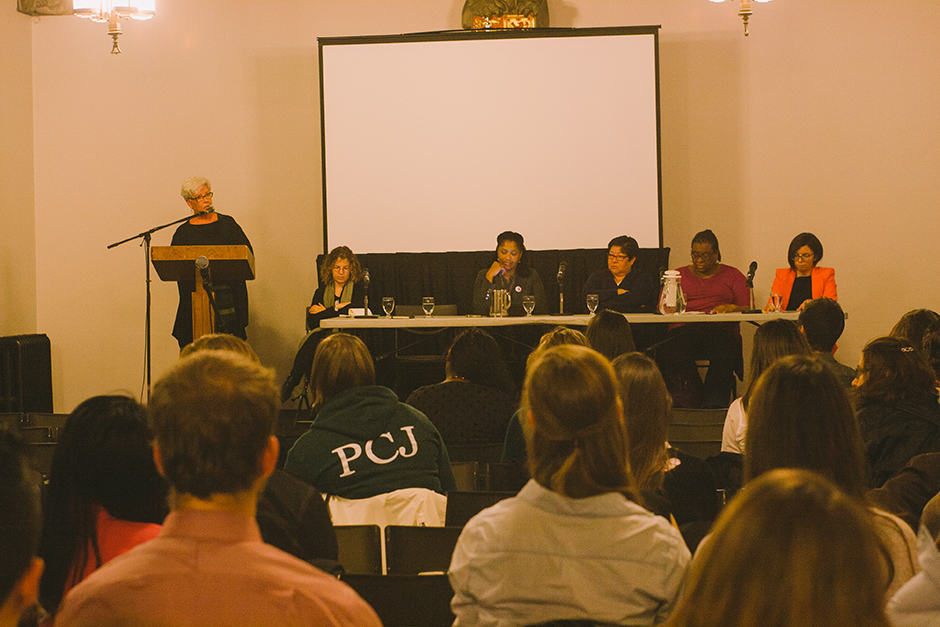A coalition of 100 organizations have launched the Up for Debate campaign, which calls on federal party leaders to participate in a debate during the 2015 election that focuses solely on disparities between men and women.
The coalition is urging Canadian leaders to make meaningful commitments to ending violence against women, ending women’s economic inequality, and supporting women’s organizations and leadership.
The University of Toronto chapter of Oxfam Canada, a non-governmental organization (NGO) that mobilizes people against poverty, organized a panel discussion on November 25 in support of the Up for Debate campaign.
“The last time we had this debate was 1984. It seems like so many things have not changed,” says Niki Ashton, a panellist who serves as New Democratic Party (NDP) Member of Parliament for Churchill and NDP Status of Women Critic.
“We do need willing partners at the federal level, and we need to know where our leaders stand,” she continues.
Ashton went on to cite Canada’s poor ratings on progress in gender equality as a reason why a national debate on women’s issues is overdue.
In the recent Global Gender Gap report released by the World Economic Forum (WEF), Canada’s progress in closing the gender gap showed a slight increase in ranking overall, but garnered poor results in individual categories.
Canada currently ranks one-hundredth out of 142 countries in the health care category, a drop from forty-ninth place last year.
Violence against women was also a contentious topic at the panel, and is one of the campaign’s main calls for action.
A study released on November 5 by The Canadian Centre for Policy Alternatives says “the previous five years have been marked by a slowdown towards closing the gender gap between the well-being of men and women in Canada.” The report specifically cites violence against women, political representation, economic security, and access to social services as areas where inequality has persisted and worsened. The report also says that Indigenous women and girls are at a higher risk of violence than non-Indigenous females.
This is in line with a May RCMP report that nearly 1200 Indigenous women and girls were murdered or went missing. The RCMP report also says that Indigenous women make up 16 per cent of the total number of female homicide victims, despite only representing 4.3 per cent of the female population of Canada.
“When we do that inquiry into missing and murdered indigenous women, we’re going to find that there are crimes against humanity going on right here in Canada in the year 2014,” says Darlene Ritchie, a panellist who serves as director of operations at Atlohsa Native Family Healing Services.
Isabel Duchesne, co-president of Oxfam U of T and event organizer, voiced concerns over accountability. “Were our federal leaders to host such a debate, they would be encouraged to commit to sound and substantial policy changes to improve the status of women in Canada, and have this specific element of their platforms face serious public scrutiny,” she says.


